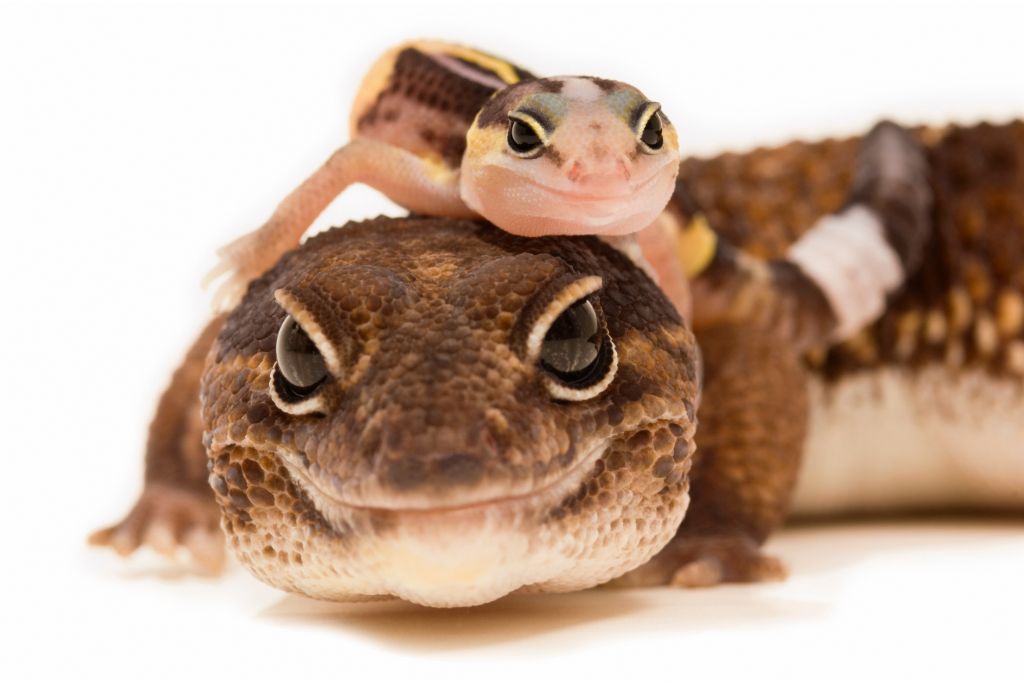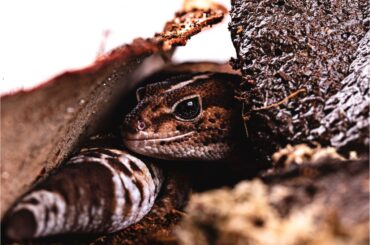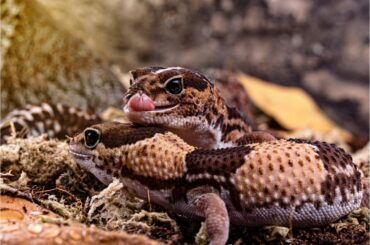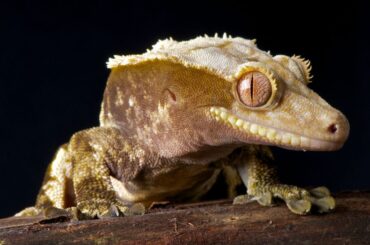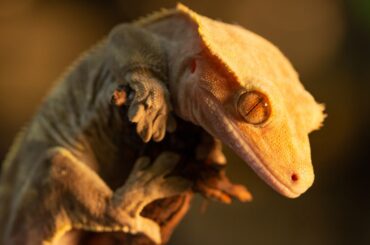Ever wondered what clues your African fat-tailed gecko’s poop might hold about its health? Understanding your gecko’s bathroom habits can reveal a lot about its well-being.
Their poop can vary in color, consistency, and frequency, giving us valuable insights into their overall well-being. The digestive system of these geckos plays a vital role in their health. Monitoring their feces provides a window into their digestive health, helping you spot potential issues early on.
By keeping a close eye on their poop, we can identify deviations from the norm, allowing us to address health concerns promptly. Let’s dive into the captivating world of gecko poop and unravel the secrets it holds!
The Role of African Fat-Tailed Gecko Poop
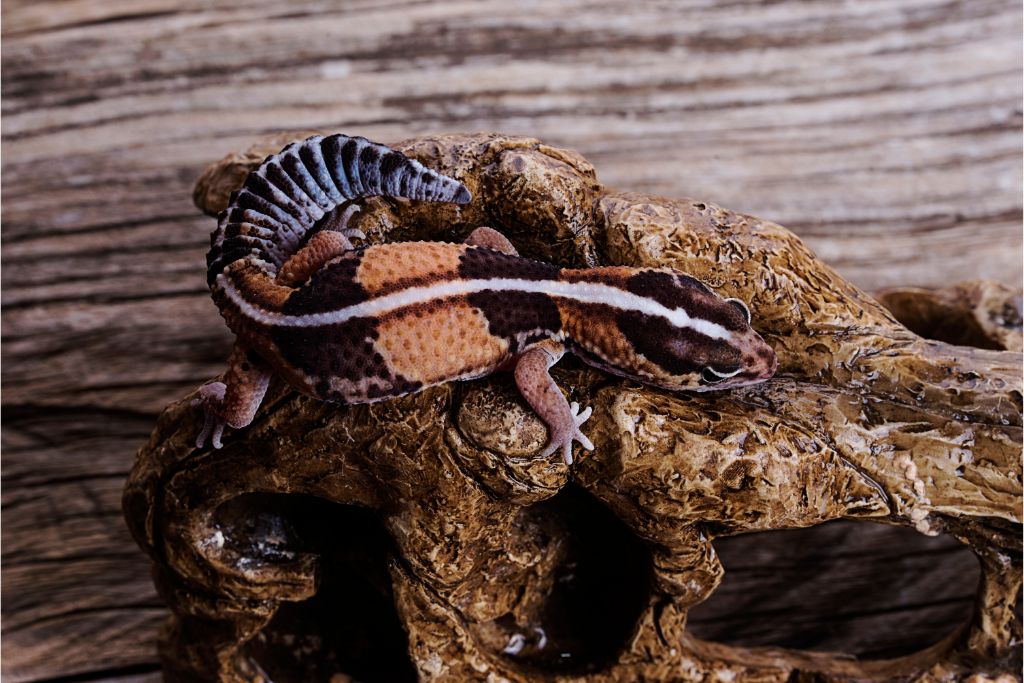
African fat-tailed gecko waste may look odd, but it reveals their health. Imagine it as a secret message that these geckos leave behind, telling us important things about how they’re feeling, especially about their health.
The color, texture, and even the amount can tell us if our gecko is facing any problems. For instance, if the poop looks strange or different, it might mean your gecko is not feeling well. It can be a sign of illnesses, dehydration, or issues with their intestines.
If it’s too dry or too hard, your gecko is not drinking enough water. On the other hand, if the poop is runny, it could signal a different problem.
Normal vs. Abnormal Poop
A healthy African fat-tailed gecko’s stool is brown or dark, well-formed, and somewhat moist. It resembles a firm sausage or cylinder, reflecting a balanced diet and proper hydration. Your gecko should poop a few times a week and not smell bad.
Keep a keen eye on any color, texture, or frequency changes. Unusual colors like red, black, or excessively watery stools may indicate underlying health issues. Pay attention to gritty or unusually soft textures, which could signal digestive problems.
A sudden increase or decrease in the frequency of bowel movements might be a red flag. Regularly monitoring these factors helps spot health issues early, keeping your African fat-tailed gecko healthy.
| Normal Poop | Abnormal Poop |
| Brown or dark in color | Unusual colors (red, black) |
| Well-formed | Excessively watery stools |
| Somewhat moist | Gritty or unusually soft textures |
| Resembles a firm sausage | Changes in frequency (increase or decrease) |
| Frequency: a few times a week | Sudden and drastic changes in frequency |
| Should not smell bad | Strong, foul odor |
Interpreting Poop in African Fat-Tailed Gecko
A healthy gecko’s poop is typically firm, moist, and dark brown. The texture should resemble toothpaste, indicating a balanced diet and proper hydration. Normal gecko poop is cylindrical and around the length of a rice grain, meaning rapid digestion.
If you observe any deviations from this norm, it may signal an underlying issue. An abnormal poop may be too soft, runny, or discolored. Such variations can signify digestive distress, potential parasites, or dietary imbalances.
A poop that changes size suddenly may suggest a gecko’s metabolic or nutrient absorption difficulties. Keep a keen eye on any irregularities to address potential health concerns promptly. Regular monitoring detects abnormalities early, allowing for appropriate action and optimal gecko health.
Frequency of Pooping
The frequency of pooping in African fat-tailed geckos may vary based on factors such as age, diet, and overall health. It’s important to note that variations in bowel movements are expected, and there isn’t a one-size-fits-all answer.
Young geckos tend to poop more frequently than adults, often up to daily, as they have faster metabolisms. Their diet also plays a crucial role; if they recently consumed a meal, a bowel movement is expected within a day or two.
Observing your gecko’s habits and maintaining a record can help establish what is normal for your pet. Generally, a healthy gecko will exhibit regular bowel movements without signs of discomfort or straining.
When to Seek Veterinary Care
Keeping an eye on your African fat-tailed gecko’s poop is crucial for being a good pet owner. If you notice sudden changes in color, texture, or if there’s undigested food, it’s important to consult a reptile veterinarian. These changes might signal health issues that need professional attention.
Regular visits to the vet help catch and treat problems early, ensuring your gecko stays healthy. If your gecko has ongoing diarrhea or constipation, it’s time to see the vet. These issues could be signs of digestive problems, parasites, or other health issues that need quick action.
Watching your gecko’s bathroom habits is a simple way to keep them happy and healthy. Trust the reptile vet to give your unique companion the best care.
Preventative Care
To live harmoniously with your African fat-tailed gecko, prioritize preventative care and holistic wellness. Keep your gecko healthy and happy with these easy yet effective nutrition and lifestyle tips to avoid feces concerns.
Premium Nutrition
Elevate your gecko’s well-being by offering a diverse and nutritious diet. Incorporate a variety of gut-loaded insects, such as crickets and mealworms, supplemented with calcium and vitamin D3. These satisfy their taste senses and strengthen their digestive system.
Proper Hydration
Ensure your gecko stays hydrated by providing a shallow dish of fresh water. Mist the enclosure regularly to create a humid environment, supporting proper shedding and aiding digestion. Adequate hydration plays a pivotal role in preventing constipation and other digestive concerns.
Temperature Regulation
Regulate the temperature within the enclosure meticulously. African fat-tailed geckos prefer warm temperatures, basking at 90°F and cooling at 75 to 80°F. Maintaining this temperature balance aids digestion and reduces irregular bowel movement discomfort.
Substrate Selection
Choose a substrate that not only promotes a clean environment but also aids in maintaining proper humidity levels. Coconut coir and cypress mulch provide a comfy substrate for your gecko and encourage natural behavior.
Proactive Cleaning Routine
Establish a regular cleaning routine to keep the enclosure pristine. Remove feces promptly and change the substrate regularly to prevent the accumulation of bacteria and parasites. A clean habitat supports a healthy gecko and reduces the risk of digestive issues.
Observational Vigilance
Cultivate a keen eye for your gecko’s behavior and droppings. Any frequency, color, or consistency changes may indicate an underlying health issue. Recognizing these small indications, you can quickly solve problems and protect your gecko.
Conclusion
Learning about African fat-tailed gecko feces reveals their health. Reptile enthusiasts can spot health issues early by closely monitoring their waste color, consistency, and regularity. This article aims to educate gecko owners on how to care for their unique pets.
Gecko owners can rapidly address health issues by monitoring toilet habits, such as color or texture changes. Proper feeding and habitat maintenance promote African fat-tailed geckos’ long-term health and pleasure. Proactive gecko care and reptile veterinarian knowledge help humans and these fascinating species get along.
FAQs
What Does Healthy African Fat-Tailed Gecko Poop Looks Like?
Healthy African fat-tailed gecko poop is typically firm, well-formed, and brown. It should not be excessively runny or have a strong odor.
What are the Signs of African Fat-Tailed Gecko Diarrhea?
Signs of African fat-tailed gecko diarrhea may include loose or watery stools, a change in color (such as yellow or green), an increase in the frequency of bowel movements, and a foul smell. Monitor your gecko and see a vet if the diarrhea persists or is accompanied by other symptoms.
How Can I Tell if My Gecko is Properly Hydrated by Observing Its Poop?
Well-hydrated gecko poop is moist and well-formed. If it’s excessively dry or hard, it could suggest dehydration. Regularly supplying a shallow dish of fresh water and a humid enclosure can help hydrate.
Why Does My Gecko’s Poop Size Matter, and What Could Sudden Changes Indicate?
Sudden changes in poop size may suggest metabolic or nutrient absorption difficulties. Monitoring size variations helps detect potential issues early and address them promptly.
How Can I Create an Optimal Habitat for My Gecko to Support Its Digestive Health?
Choose a substrate, regulate temperature, and start a cleaning regimen to keep everything clean. These factors and a healthy diet and hydration help your gecko’s digestion.

